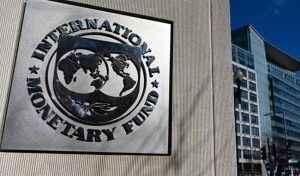“Sharp Rise in Vehicle Growth Fuels Air Pollution in Pakistan’s Urban Centers”

M.Zubair Anjum:
Islamabad: Pakistan has seen a sharp rise in vehicle growth since 2000 which is a major contributor to air pollution in the country, especially in its urban areas. Lahore, Karachi, Peshawar and Islamabad are the most air polluted cities in the country where air pollution reduces life expectancy by more than five years per person, said Fair Finance Pakistan in its media statement. Fair Finance Pakistan reported reduced productivity, work absences, and premature deaths from air pollution. It is also costing the economy 6.5% of the country’s GDP per year.
In its statement on X, Fair Finance Pakistan noted, “As populations are increasingly concentrated in urban areas, the number of people living near roadways are exposed to traffic-related air pollution from nitrogen oxide.
Studies show exposure to NO2 in confined environments, such as tunnels, which increase health risks, affect human organs, including the brain and lead to neurodevelopmental disorders. These associated health risks from air pollution translate into lower productivity and diminished individual cognitive and physical capabilities, meaning lower incomes and slow economic growth in the long run.” Vehicular growth has happened at the cost of human economy. Blind growth strategies, lack of emission standards, and enforcement of regulations in the road transport sector have cost citizens their lives, increased disease burden and healthcare costs mainly in urban areas.
Pakistan Economic Survey 2023-24 reports motor cars hold the largest share (4.9 million) of the 35 million registered motors in Pakistan. Big auto manufacturers in Pakistan including Indus Motors, Honda Atlas and Hyundai reported record sales in 2024 after a brief slump last year. Car sales in Pakistan rose to 120 percent on year-to-year basis in the fiscal year ending 2024.
In June 2024, auto sales jumped to 13,284 units and touched an 18-month high. A stable currency and a reduction in interest rates by banks are cited as major reasons behind the rise in car sales.
In his statement, Asim Jaffry, Country Programme Lead, Fair Finance Pakistan emphasized, “Air pollution is an avoidable problem. We need clear policy directions to avoid this problem. Multi-lateral financial institutions should increase significant resources to help Pakistan’s private sector move towards net-zero transition. Commercial banks must include air quality in their risk assessments and sustainable due diligence before lending money to companies.”





